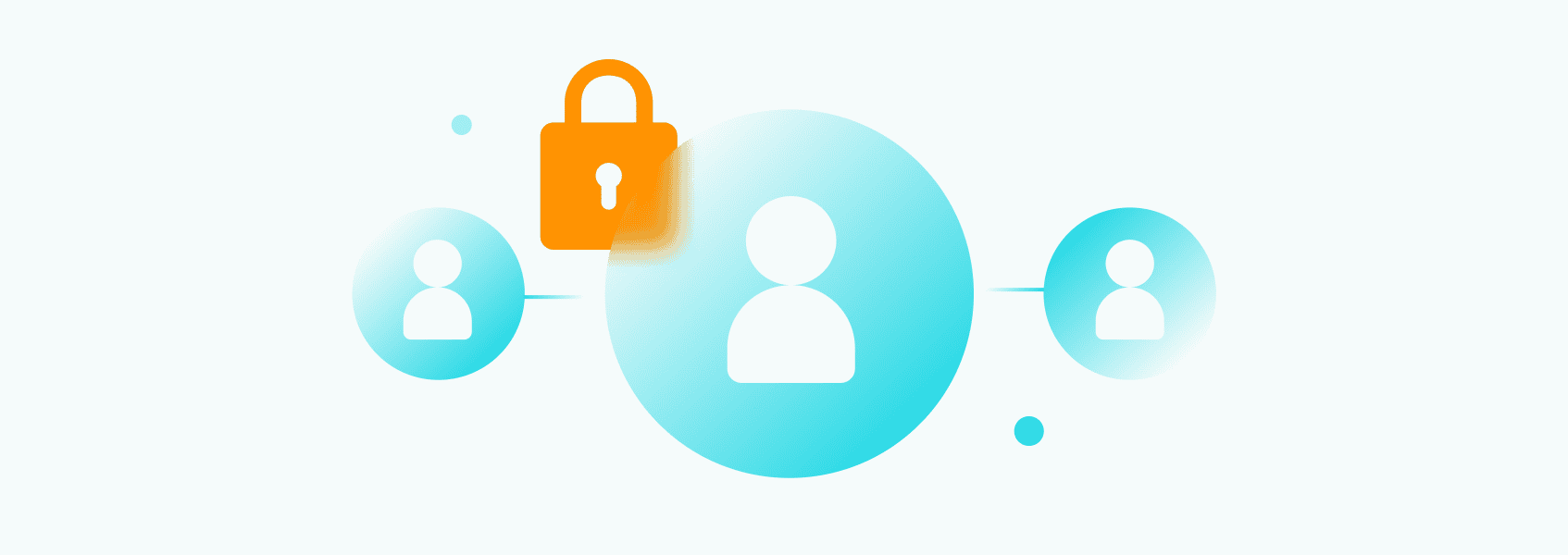Different Types of Proxy Servers and Their Uses
Proxy fundamentals

Justas Palekas
Proxy servers can be incredibly useful for internet users. They can improve your privacy, security, and online freedom. They can also help you perform a myriad of business online activities efficiently, like web scraping and social media management, without worrying about detections and bans.
But to benefit from proxies, you must select the right type for your needs. While residential proxies may be one of the most popular options, there are plenty of others based on various factors like the IP they use, the way they handle traffic and the anonymity they provide.
For that reason, you have to understand the different proxy types and how they work. It’s the only way to ensure you pick the ideal proxy service for your needs.
Here’s everything you need to know about residential proxies and other proxy types so you can make the right decision!
Proxies Based on Source
Proxy servers replace your IP address with a new one. The new IP address can come from different sources, which determines the type of proxies based on the IP source. The most common ones include:
- Residential proxies
Residential proxies use IP addresses that are assigned to real residential users by ISPs or Internet Service Providers. These proxies offer a higher level of legitimacy as they mimic real users’ IP addresses. This is why they have the highest trust score, making them the most secure and trustworthy proxies. Read our blog on what is a residential proxy to understand them deeper.
When using one of these proxy servers, you connect to a real user’s device on Wi-Fi, such as a laptop, computer, or mobile phone. This device works as a gateway, masking your IP address with its own. In most cases, you get access to the provider’s entire dedicated residential proxy pool, allowing you to pick the right IP addresses for your location and rotation requirements.
These proxies are commonly used for tasks like web scraping, social media management, and sneaker or ticket purchasing, where maintaining a low profile and avoiding detection is important.
Here’s a video that covers the top eight ways to use them:
- Datacenter proxies
Datacenter proxies are IP addresses obtained from data centers or cloud services rather than internet service providers (ISPs). While this may indicate a lower trust score, it also means no ISP constraints, resulting in faster speeds and better availability than residential proxies.
These proxies provide anonymity and are often used for tasks such as web scraping, ad verification, and bypassing geo-restrictions. They are generally cheaper and faster than other proxies, but they may be more easily detected and blocked by certain websites.
That’s because they are not associated with legitimate ISPs and come as blocks – a series of IP addresses following one after another in sequence. Find out more in our datacenter vs residential proxies comparison.

- ISP proxies
ISP proxies are what you get when you combine residential and datacenter proxy servers. While they are sourced from ISPs like residential proxies , they are hosted in data centers. This means they possess the qualities of both proxy types – the anonymity of residential and the speeds of datacenter proxies.
Since ISP proxies are sourced from ISPs, they are highly legitimate and extremely hard to detect. Not depending on unreliable end-user connections makes them fast and stable as well. But the fact that they rely on data centers indicates limited location coverage and lower subnet diversity, making them easier to blacklist if not refreshed.
These proxies are great for online tasks requiring consistent identity and/or high traffic, as they typically come with unlimited bandwidth. People use them for large-scraping projects, ad verification, bypassing geo-restrictions, SEO monitoring, social media monitoring, purchasing multiple limited-edition products, etc.
- Mobile proxies
Mobile proxies , most commonly found as 5G/4G/3G mobile proxies, utilize IP addresses assigned to mobile devices by cellular networks. They offer a high level of anonymity and are often used for mobile-specific applications, such as mobile app testing , mobile ad verification, or mobile gaming.
They are also quite popular among social media users . These proxies can simulate real user behavior and provide access to mobile-specific content.
Here’s a quick overview of the key differences between these proxy types:
| Residential | Datacenter | ISP | Mobile | |
|---|---|---|---|---|
| Authenticity | Highest | Medium | High | Highest |
| Availability | Medium | High | High | Medium |
| Speed | Medium | High | High | High |
| IP rotation | Yes | No | No | Yes |
| Price | Medium | Low | Low | High |
Proxies Based on Service
The proxy’s IP address can be used by one or more users at the same time. The number of simultaneous users affects online speed and security, so you should be aware of this when choosing your proxies.
Here’s how proxies are categorized depending on the number of users sharing the same IP.
- Public proxies
Public proxies are typically free and available to everyone . This means they are shared between numerous users at the same time, making them extremely unreliable and slow. For that reason, they provide minimal privacy and no security online. In fact, they may even be a security risk.

- Shared proxies
While shared proxies are not free, they are the best budget-friendly option when you need reliable proxies. They are obtained from proxy service providers and are specifically allocated to a limited number of users. Unlike free proxies, these proxies are regularly updated and monitored for uptime and performance.
- Private proxies
Private or dedicated proxies offer the best performance and privacy online. They are dedicated to a single user at a time, so you won’t share them with anyone else. With these proxies, you have complete control over how or when you use them. Hence the higher prices.
To learn more about private proxies , check out this video:
Proxies Based on Anonymity
The primary goal of proxies is to provide anonymity on the internet. However, not all proxy servers offer the same level of anonymity, depending on how they handle requests. Here are the three main proxy types based on anonymity.
- Transparent proxies
Transparent proxies don’t modify the request headers and can be easily identified. They don’t provide any real anonymity because the target server can see your original IP address. These proxies are commonly used for caching and content filtering.
- Anonymous proxies
Anonymous proxies hide your IP address but reveal that you use a proxy server. While they offer some level of anonymity, the target server can still detect that you’re using a proxy.
However, your original IP address remains hidden, so you can use them for general web browsing.
Elite or high anonymity proxies offer the highest level of anonymity. They hide your IP address and don’t reveal you’re using a proxy. These proxies provide genuine privacy and make it difficult for the target server to identify your real IP or determine that you’re using a proxy.
That’s why you can use them with websites, services, and apps that block connections from proxies.

Proxies Based on Rotation
While some proxies change their IP addresses, others have IPs that never change. As a result, there are rotating or static proxies , so here are a few words about each.
- Static proxies
Static proxies never change their IP addresses. This makes you appear as a real user, no matter how often you access the same website or service.
For that reason, they are extremely trustworthy and ideal for situations when you need to maintain the same online identity. Most common proxy use cases include dealing with platforms that require user login, such as social media.
These proxies can be shared or dedicated, depending on the provider, the latter offering better privacy and performance.
- Rotating proxies
Rotating proxies, also known as backconnect proxies , offer IP rotation. In other words, they change your IP constantly, usually at a set period or after each request, making it extremely hard for anyone to trace your online activity back to you.
The rotating options makes them ideal for sending numerous connection requests to a site or service without getting detected or blocked, such as web scraping.
Some rotating proxy services support sticky sessions, allowing you to keep one IP address for longer, depending on the provider. This can be very useful in web testing, web scraping, market research, social media management, etc.
However, these proxies are always shared. While this makes them a bit slower and less reliable than static proxies, they are still your best option when you need to change your IP address frequently.

Proxies Based on Protocol
Proxy servers can use several internet protocols to receive and forward client connection requests. Here are the main types of proxies based on the protocol they support.
- HTTP proxies
HTTP proxies are designed to handle HTTP requests, intercepting and modifying HTTP traffic between the client and the server. They support the HTTP protocol, which is the most common of all, and were particularly popular in the past decade or two.
These proxies are primarily used for web browsing, caching, content filtering, and access control.
- HTTPS proxies
HTTPS proxies , also known as SSL proxies, are specifically designed to handle encrypted HTTPS traffic – a safer version of HTTP. They can intercept and decrypt HTTPS requests to inspect the traffic and provide additional security features.
HTTPS proxies are commonly used to secure web browsing and protect sensitive data. This is why they are used by both private and business users who want to ensure the data they transfer is unreadable even if intercepted.
- SOCKS proxies
SOCKS (Socket Secure) proxies operate at a lower level than HTTP proxies. They can handle various types of network traffic, including HTTP, FTP, and other protocols. This allows you to use them in various applications and scenarios. You may even use them on particular apps and programs instead of your entire traffic.
These proxies are more versatile and can be used for activities such as torrenting, gaming, and accessing restricted networks. The two versions of SOCKS proxies include SOCKS4 and SOCKS5.
- SOCKS5 proxies
SOCKS5 is a more advanced version of the SOCKS protocol, supporting both TCP and UDP connections. You can check your TCP connection in our TCP checker . SOCKS5 proxies offer authentication, UDP relay and can handle various protocols beyond HTTP, including FTP, SMTP, and more.
Unlike SOCKS4 proxies, these proxy servers ensure a secure connection using SSH – an encrypted tunneling technology. The high versatility, flexibility, and speed make them a good fit for many use cases, including bypassing geo-restrictions, live calling, gaming, streaming, etc.
SOCKS5 proxies are covered in this video:
To Sum Up
Figuring out you need proxies is the first step to getting the solution or tool you need for optimal privacy and freedom on the internet. The next and most important step is selecting the right type of proxies for your use case.
This guide can help you learn everything you need about residential proxies and other proxy types so you can choose the perfect proxies for you or your business. As long as you get them from a reliable provider like IPRoyal, you can expect maximum anonymity, privacy, and performance!
FAQ
What type of proxy is right for me?
The perfect proxy type depends on several factors, including your specific use case and budget. Residential proxies are more expensive, but they are ideal when dealing with protected websites and localized data. Datacenter proxies are a more affordable option when working with less sophisticated targets. Rotating proxies are great for web scraping and SEO, and static proxies for social media managing and banking. HTTP(S) proxies work best for web scraping and similar activities, while SOCKS proxies are more versatile.
How do I check which proxy type I’m using?
To check the type of proxy you’re using, along with the current status and speed, use the IPRoyal Proxy Tester . If you want to check the location, ISP, and other information regarding your proxy, check out our IP Lookup page.
Is using residential proxies and other proxy types necessary?
It depends. If you want to avoid geo-restrictions, protect your online privacy, or perform any tasks requiring a large number of IPs, yes. Business proxy server is essential for accessing geo-restricted content and preserving your online anonymity. They’re also a critical component of different business operations like web scraping, social media management, SEO research, and more.

